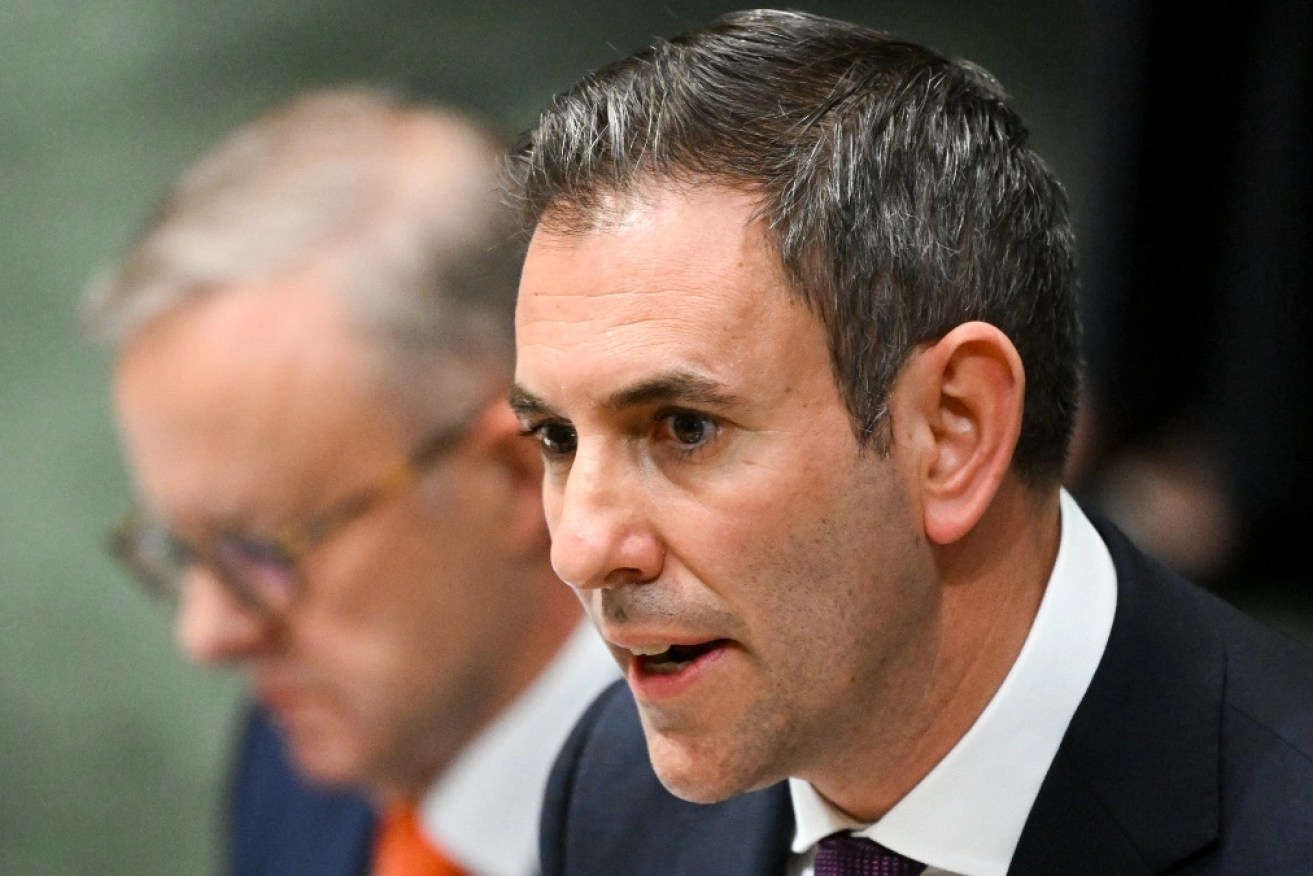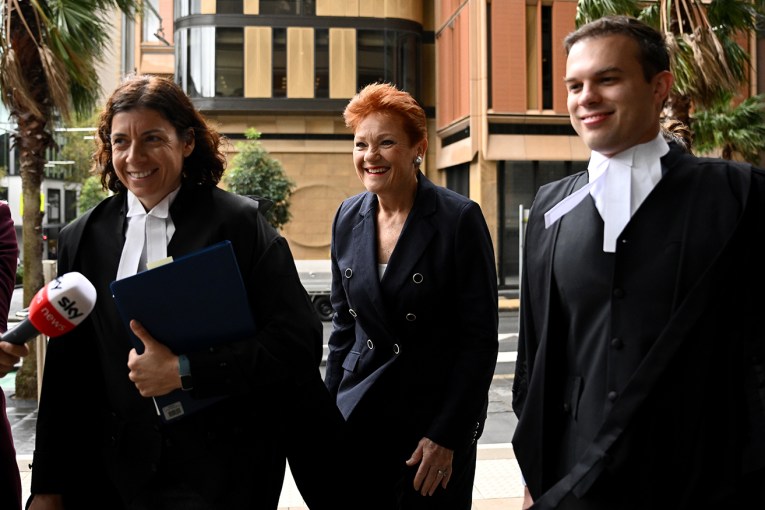Michael Pascoe: Morrison heeded the Tooth Fairy when Treasury warned against tax cuts


Treasurer Jim Chalmers faces tough - some would say 'impossible' - decisions to get the economy out of the red. Photo: AAP
In 2018 when Scott Morrison was announcing his tax-cut package, the Treasury set out the grounds for scrapping Stage Three:
“Accounting for the proposed tax cuts, Government net debt is projected to fall to zero over the medium term, providing a strong fiscal buffer for Australia. The underlying cash balance is projected to record surpluses through to the end of the forward estimates and build steadily to 1 per cent of GDP by 2026-27.“
That was the Coalition’s Treasury, the one doing what then-Treasurer Morrison wanted it to do. It also warned:
“It is important that the government continues to build fiscal buffers over time.”
Put aside any questions of equity and an ideological drive to compress our progressive income tax system and look at the bottom line.
Given what has happened since those overly-optimistic days, by the Coalition’s own rhetoric, we can no longer afford to blow $243 billion on a decade of Stage Three cuts.
The government’s net debt isn’t falling to zero over the medium term. The underlying cash balance is in absolutely no danger of building steadily to 2026-27, let alone reaching a fairy story 1 per cent of GDP. There is no “strong fiscal buffer” for Australia that might allow fat tax cuts.
And it’s not just a matter of servicing the mountain of debt run up during the COVID crisis and eventually reducing it – future demands on the budget have grown as well.
Tooth Fairy tax cuts
The Morrison tax-cut package with the distant Stage Three element was always more politics than economics and responsible management. Wiping out an entire rung of the tax ladder, having people on $45,000 a year with the same marginal tax rate as those on $200,000, was a neoliberal dream packaged to wedge Labor ahead of the 2019 election.
It was an election Labor fought with some actual tax reform policies – policies whose impact would have been felt more by those higher up the ladder than those at the bottom. That Labor could not adequately sell them to save itself has left the party scarred by and scared of tax reform.
But in the present circumstances it would be irresponsible governance, not smart politics, to keep a promise made back when unicorns danced over rainbows and the Tooth Fairy, Santa Claus and Easter Bunny were all regularly seen in the public bar.
Of course an integrity-free opposition and the usual media suspects would run hard with the “breaking a promise” line – something with all the intellectual rigour of shouting “your mother wears army boots”.
People made all sorts of promises and plans that had to be broken, thanks to COVID. As colleague Alan Kohler nicely riffed from his book club on Monday by quoting the opening line from L.P. Hartley’s The Go-Between, “the past is a foreign country: they do things differently there”.
Then and now
The Commonwealth’s balance sheet will be a very different animal in 2024 than it was guessed to be back in 2018.
What is curious at this stage of Treasurer Jim Chalmers edging towards acting like the adult in the room is the effort of some Labor members calling for Stage Three to be kept. It’s left for conjecture whether they’re talking their own tax return (backbenchers’ base salary is just a little more than that maximum cut figure of $200K) or lacking political backbone.
The chance – and, I have to hope, the likelihood – is that Mr Chalmers and his Prime Minister are letting the problem percolate, waiting for it to brew up enough strength to “delay” Stage Three while a necessary, broader review of our sub-par tax system is conducted. Even at the economically conservative end of the Teals spectrum, Allegra Spender would appear to be onside with that.
Yes, the “discussion” we have to have.
In the meantime, there are some measures suggested previously in this space to plug a few budget holes but the bigger questions about a sustainable, equitable tax system remain and many of them are hard.
The Treasury document cited at the start is full of the usual simplistic economic theory (i.e. drivel) trotted out to serve the long-term neoliberal agenda of lower-taxing and, therefore, smaller government.
My favourite is the first suggested benefit of the tax cuts:
“Lower marginal tax rates increase the financial return from work. Higher take-home pay may encourage some workers to re-enter the workforce, or seek additional hours.”
The first sentence says the sun rises in the east. The second isn’t much less obvious but is laughable in the context of the Stage Three gifts for the relatively well-off on backbenchers’ wages.
Low-rent slogans
Where tax rates really discourage additional hours and re-entering the workforce isn’t the territory of Stage Three, but way down the ladder where meshing with the transfer system means excruciatingly high effective marginal tax rates of 80 and 90 per cent really do discourage employment.
But dealing with that is difficult. So much easier to stick with low-rent slogans about breaking promises.
I can’t remember who it was who first tweeted it, but it’s impossible to argue honestly with the idea that keeping a bad promise is worse than breaking a bad promise.








